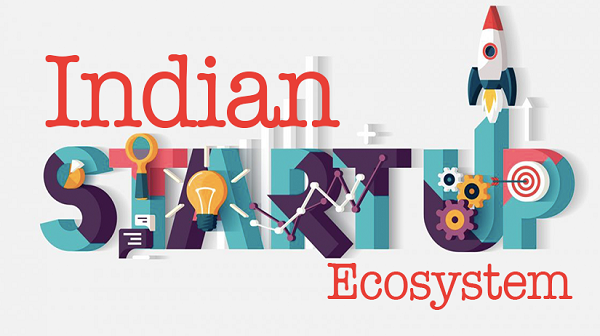India’s startup ecosystem has undergone a phenomenal rise, transforming the nation’s economic landscape. From humble beginnings, it has evolved into a dynamic hub brimming with innovation, entrepreneurship, and a relentless pursuit of growth. This article delves into the heart of this ecosystem, exploring its defining characteristics, key drivers, and the exciting future that lies ahead.
The Rise of a Powerhouse: Today, India boasts the world’s 3rd largest startup ecosystem, housing over 50,000 startups, with a significant focus on technology (as of 2023). These startups operate across diverse sectors, including e-commerce, fintech, edtech, healthtech, and agritech, each addressing specific needs and challenges within the Indian market. The year 2023 witnessed consistent annual growth of 12-15%, fueled by a surge in venture capital funding, reflecting growing investor confidence in the potential of these young companies.
Defining Characteristics: Several key characteristics define India’s unique startup ecosystem:
- Focus on Innovation with Local Context: Startups are adept at identifying and addressing local challenges with innovative solutions, catering to the specific needs of the Indian market.
- Demonetization and Digital Push: The government’s demonetization initiative and subsequent push for digital payments significantly accelerated the growth of fintech startups. This focus on digital transformation continues to be a driving force across various sectors.
- Young and Tech-Savvy Population: India’s young and tech-savvy population provides fertile ground for startups. This demographic is not only a large potential customer base but also a source of talent and entrepreneurial spirit.
Fueling the Engine: Several factors have contributed to the remarkable growth:
- Government Support: The government has implemented various initiatives, including setting up incubation centers, simplifying regulations, and offering tax breaks, creating a more conducive environment for young entrepreneurs.
- Rise of Angel Investors and Venture Capital Firms: The emergence of angel investors and dedicated venture capital firms willing to invest in early-stage startups has provided much-needed funding and mentorship, crucial for nurturing innovation and scaling businesses.
- Affordable Talent Pool: India boasts a large pool of skilled and talented individuals, particularly in the technology sector, providing startups with the human resources needed to develop and implement their ideas.
Beyond the Numbers: The Indian startup ecosystem is not a monolith:
- E-commerce and Fintech: E-commerce giants like Flipkart and Myntra have revolutionized online shopping, while fintech companies like Paytm and PhonePe have made digital payments accessible to millions.
- Edtech and Healthtech: Edtech startups like BYJU’S and Unacademy are transforming education by providing accessible online learning, while Practo and 1mg are leveraging technology to improve healthcare access and delivery.
Challenges and the Road Ahead: Despite its impressive growth, the ecosystem faces challenges:
- Infrastructure Bottlenecks: Inadequate infrastructure, particularly in logistics and internet connectivity, can hinder smooth operation and scalability.
- Focus on Funding Over Profitability: The emphasis on securing large funding rounds can overshadow building sustainable business models and achieving profitability.
- Skilled Workforce Gap: Bridging the gap between available talent and the specific skill sets required by startups remains an ongoing challenge.
Addressing these challenges is crucial for ensuring long-term sustainability and success.
Looking Forward: The future holds immense potential:
- Deep Technologies: Startups focusing on deep technologies like artificial intelligence, blockchain, and internet-of-things (IoT) are poised to play a significant role in shaping the future of various industries.
- Tier-II and Tier-III Cities: The rise of startups in these cities is expected to be a defining trend, leading to a more geographically balanced ecosystem and contributing to inclusive economic growth.
- Social Impact Entrepreneurship: An increasing number of startups are focusing on social impact, addressing challenges like poverty, education, and healthcare in underserved communities, highlighting the growing commitment to positive social change.
In conclusion, India’s startup ecosystem has emerged as a vibrant hub of innovation and entrepreneurship, playing a vital role in driving economic growth and creating new employment opportunities. By addressing existing challenges, fostering an environment conducive to sustainable growth, and embracing emerging trends, India is well-positioned to solidify its position as a global leader in the exciting world of startups. As the ecosystem continues to evolve, it holds immense potential to not only shape the future of Indian businesses but also contribute to meaningful social progress and development.




